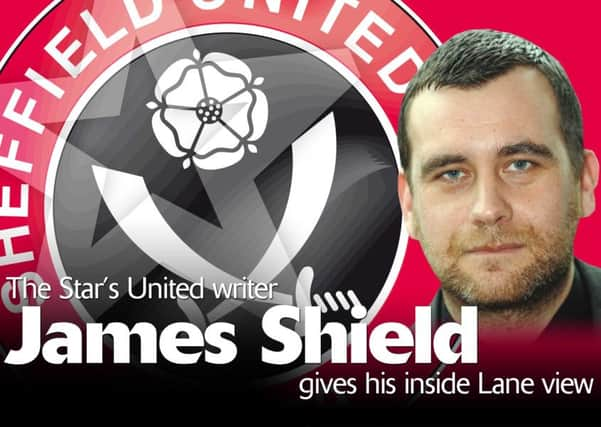James Shield's Sheffield United Column: The great myth about The Blades' transfer business


Another concerns Sheffield United’s transfer activity since winning the League One title last season. Or the timing of the deals they did complete to be exact.
Three points behind sixth-place with only three matches remaining, a theory has developed among sections of the commentariat and supporters alike that January was the month when the club failed to make the required additions which could have seen them comfortably ensconced in a play-off berth ahead of tomorrow’s visit to Birmingham City. This, I believe, is a fallacy. June, July and August were actually the crucial months.
Advertisement
Hide AdAdvertisement
Hide AdWilder has made no secret of the fact that, reflecting upon some of the performances his team has produced, analysing the wealth of chances they have missed and matches where opponents have been let off the hook, United should already been preparing for a shot at Wembley and, if all went well, the Premier League. Indeed, at one of his recent pre-match media conferences, he turned-up wearing glasses because “I can’t believe some of the things I’ve seen of late.” It was a joke. Maybe not the funniest he has ever cracked in his life. But one which, even though it is impossible to be too censorious, revealed a degree of frustration about how the campaign as gone.
Attention has focused on the period after Christmas, when clubs in contention supposedly strengthen their promotion credentials, during most critical assessments. I would argue the business United completed then was actually quite impressive, with Lee Evans Ryan Leonard and Ricky Holmes arriving on a permanent basis, and that the summer was actually a more influential time. Why? Because it is easier to bed new acquisitions in during pre-season when tactics can be worked on and folk are being judged on their own merits rather than compared to those they have replaced. Had United acquired Leonard and Holmes then, when Wilder first tried to bring them in, they would almost certainly have taken more than six points from 27 following Paul Coutts’ leg break during November’s victory over Burton Albion. It must also be remembered several members of the squad, who might otherwise have been rested, played through illness at Preston a few weeks later. One more win back then, even a couple of draws, would have greatly improved United’s position in the table. Rather than being three points behind sixth-place with three games remaining, they might already be gearing-up for the end of season knockouts.
This makes it vitally important that United’s co-owners, even if their battle for control is still not settled, shortly call a temporary truce and allow Wilder to action his plans immediately after the final fixture at Bristol City.